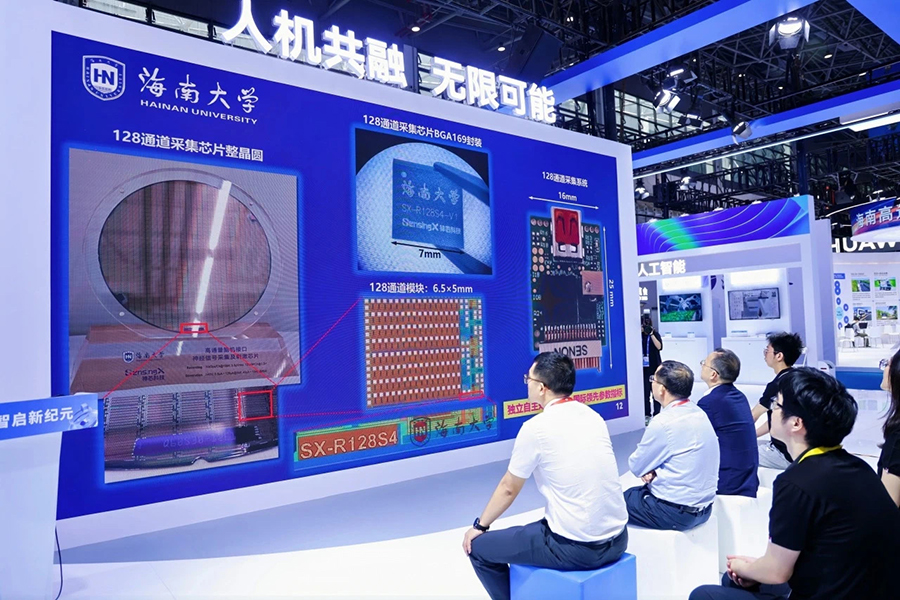Hainan University showcases implantable brain-computer interface technology


Hainan University has unveiled its independently developed implantable brain-computer interface (BCI) technology at the fifth China International Consumer Products Expo in Haikou, marking a major step toward China's self-sufficiency in the field.
The university showcased a series of advanced BCI products, including a specialized chip, neural signal acquisition and modulation systems, and a neuron positioning system - all achieving full supply-chain independence. The breakthrough introduces a "Chinese chip" to global brain science research and medical applications.
Key innovations include the SX-R128S4 high-throughput neural signal acquisition and stimulation chip, the SX-S32 high-degree-of-freedom neural modulation chip, and the SX-WD60 low-power wireless transmission chip. These components cover the entire BCI process - signal collection, regulation, and transmission - with performance rivaling leading international products.
The research team, with nearly 20 years' experience in BCI chip development, has earned recognition from academic and industry partners.
A team representative emphasized their commitment to innovation: "Specialized chips are the backbone of BCI systems. Our work ensures China no longer relies on imported implantable BCI chips, accelerating the industry's growth."
The development positions China among the frontrunners in next-generation neurotechnology, with potential applications in medicine, assistive devices, and neuroscience research.
- China's patrols around Diaoyu Island lawful, justified: spokesperson
- China urges international community to prevent revival of Japanese militarism
- Extended visa-free transit program fuels surge in China's inbound visitors
- Research report on Japan's nuclear ambitions released in Beijing
- Chinese vice-premier stresses importance of wheat field management
- Installed capacity of new energy storage surges in Xinjiang





































